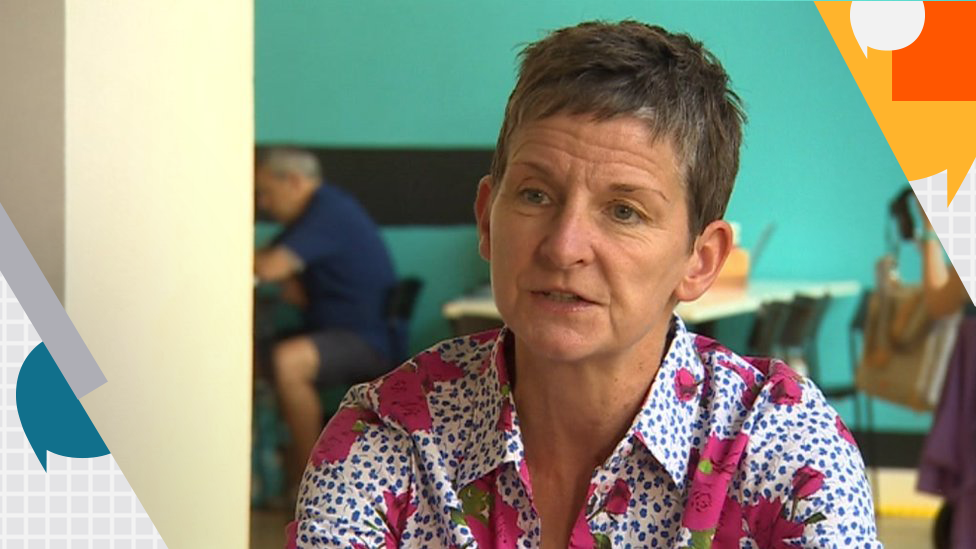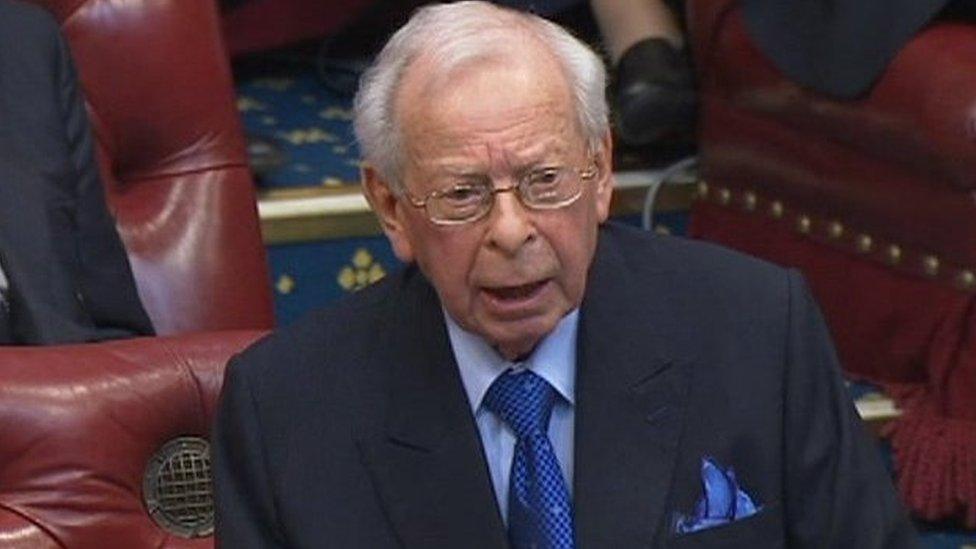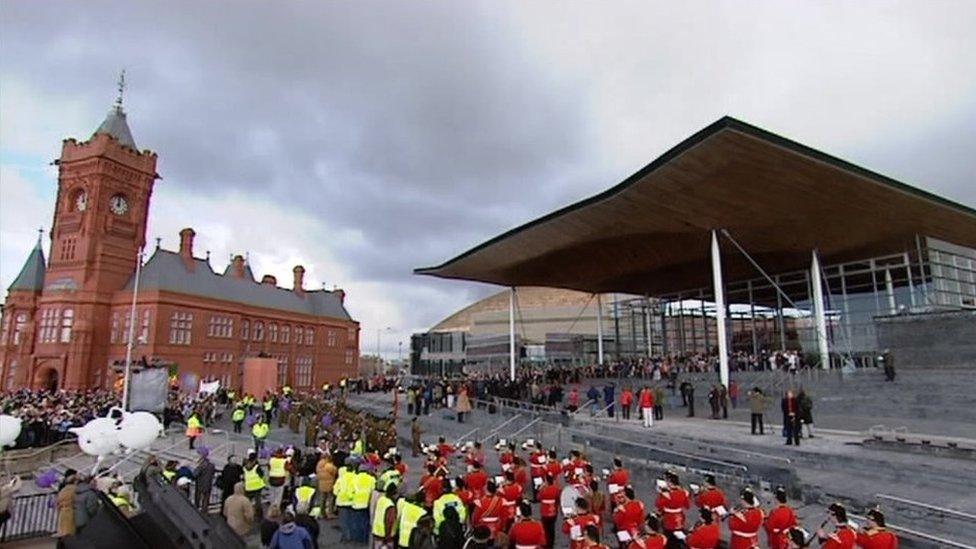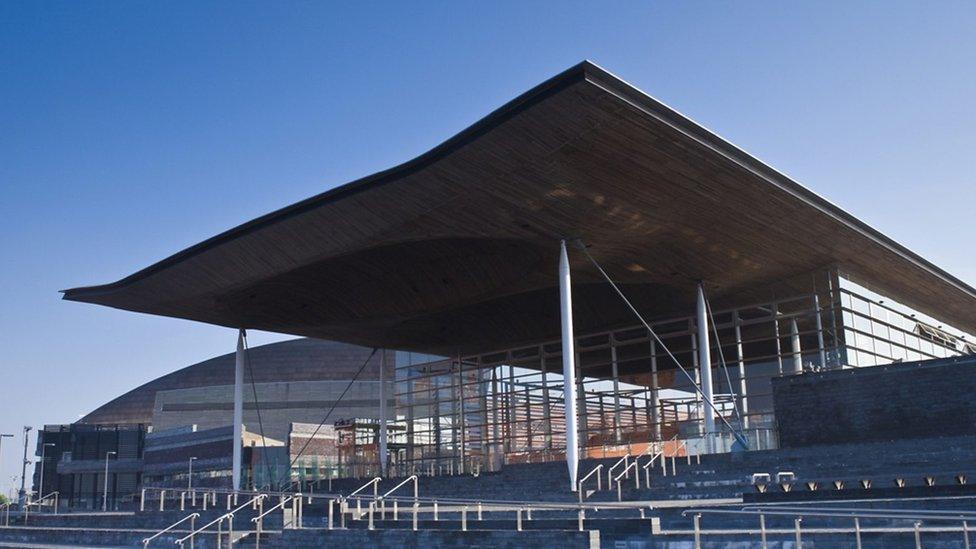General election 2019: Will your vote make any difference?
- Published
What does devolution mean for voters?
Voters across the UK are set to go the polls on 12 December for the third general election in four years.
But as politicians compete for the votes of people living in Wales, Scotland and Northern Ireland, will your choice make any difference to what matters most to you?
What is devolution?
Devolution has seen the transfer of powers from central government to nations which make up the UK, a process which started following referendums in 1997 and 1998.
These resulted in the creation of the Scottish Parliament, the National Assembly for Wales and the Northern Ireland Assembly.
What exactly is devolved varies in each nation, but the process has limited the power of the UK government to set policy in these nations.
This means voters in the devolved nations will not be able to influence important areas of policy such as health and education at a general election. But it is not quite that simple.

Which powers are devolved?

CONFUSED? Our simple election guide, external
POLICY GUIDE: Who should I vote for?, external
REGISTER: What you need to do to vote

Which powers are not devolved?
The UK government, led by the prime minister in Downing Street, is responsible for policy on all powers which have not been devolved - known as "reserved powers".
Scotland's devolved government and parliament control more areas of policy than the Welsh Assembly or Welsh Government, particularly when it comes to criminal justice and the courts.
Justice and policing were also devolved in Northern Ireland, but the assembly there is not currently sitting and there is no Northern Ireland executive.
The main areas which are reserved to Westminster are:
The constitution
Defence and national security
Foreign policy
Immigration and citizenship
Social security (devolved in Northern Ireland and to be fully devolved in Scotland by 2021)
Pensions
Most forms of tax (but not in Scotland)

What problems does this create?
The complexities of devolution do create confusion for voters, according to Laura McAllister, professor of public policy at Cardiff University.
"It's very hard for anyone in a multi-layered political system to determine what's up for grabs, and this happens virtually everywhere where there is multi-layered governance," she said.
"The polls show, even in this election which has been dominated by Brexit, that there has been a big focus on health and education.
"Should it be the case? Well, you could argue not, because everything should be about what's at stake, what's under the control and competence of who you are voting for."

Laura McAllister says voters can have an impact on how much money devolved administrations receive
Prof McAllister argued Welsh politicians often willingly elevate the issue of health at general elections because it resonates, even though they know it is not strictly relevant to voters in Wales.
How is funding decided?
The way in which voters in devolved nations can influence devolved policy at a general election is through funding.
The Barnett formula is a system of grants which dictates the level of public spending in Scotland, Wales and Northern Ireland.
The formula is named after its inventor, the former Labour Chief Secretary to the Treasury Joel Barnett, who devised it in the late 1970s.
Under the formula, extra funding - or cuts - from Westminster are allocated according to the population size of each nation and which powers are devolved to them.

Lord Barnett said the formula which bore his name was no longer fit for purpose
When the UK government increases or decreases funding for departments such as health and education in England, the Barnett formula is used to decide how much devolved governments will receive.
Crucially, the amount of money the devolved government receives - roughly 5% in Wales - is not ring-fenced, meaning it can spend it how it likes.
How does funding for the nations compare?

On the face of it, Wales does not do too badly when it comes to public spending - at just under £10,400 per person in 2017-18, it is 11% higher than the UK average of £9,350.
But when you compare this with Scotland, 16% higher, and Northern Ireland, 20% higher, the reality is less favourable.
In later life Lord Barnett, who was made a member of the House of Lords in 1983 and died in 2014, said the formula was "grossly unfair" and should be abolished.
Does it matter who we vote for?
As Prof McAllister pointed out, while voters in Wales, Scotland and Northern Ireland do not get a direct vote on devolved issues such as health in this election, the way they vote could have an impact on how much money the devolved administrations receive - or lose out on - from the UK government.

What questions do you have about Wales, its people and places?
Is there anything you've always wanted to know?
Use this form to send us your questions:
If you are reading this page on the BBC News app, you will need to visit the mobile version of the BBC website to submit your question on this topic.
We may get in touch if we decide to follow up on your suggestion.
- Published13 November 2019

- Published7 May 2019

- Published18 September 2017

- Published30 October 2014
